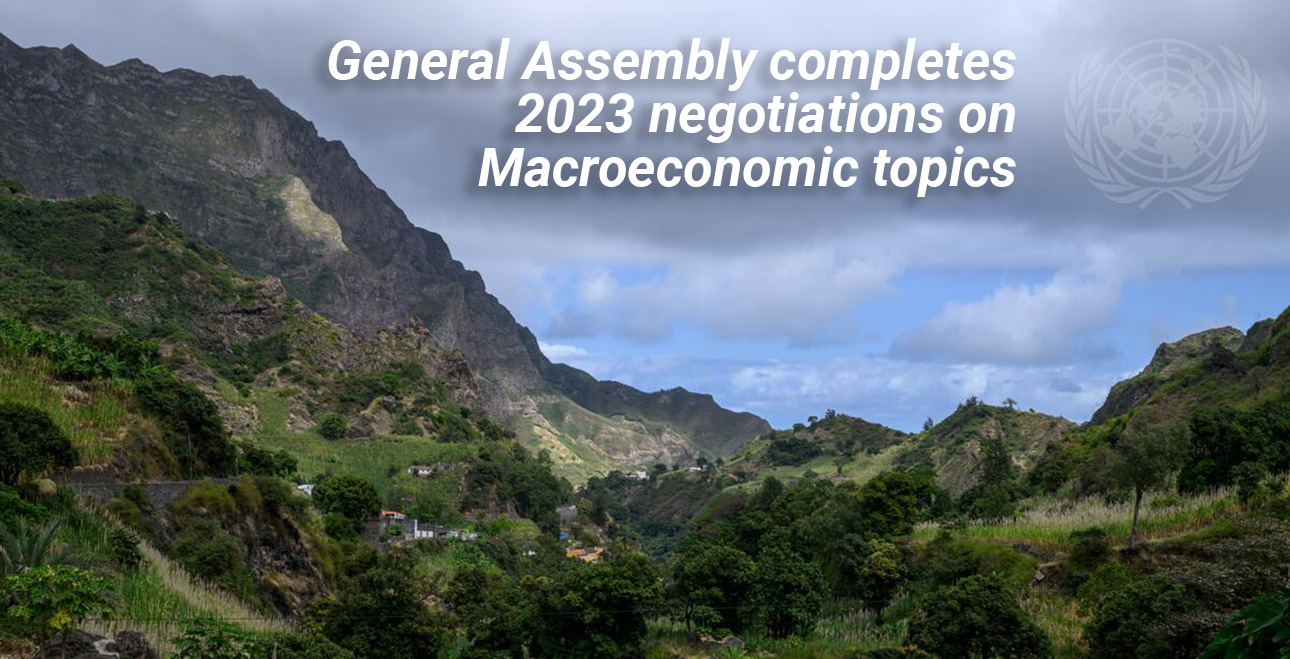
Every year the Economic and Financial Committee (Second Committee) of the General Assembly deals with issues relating to economic growth and development such as macroeconomic policy questions and financing for development. The Second Committee recently concluded its main work during its seventy-eighth session, and approved substantive resolutions related to financing for sustainable development on the following topics: international financial system, illicit financial flows, financial inclusion, external debt sustainability, investment, commodities and trade. The General Assembly plenary will formally adopt these resolutions in December.
The resolution on the international financial system and development further emphasizes the role of multinational development banks (MDBs) and their recent progress on mobilizing additional capital through Capital Adequacy Framework review, and reiterates the previous year’s call for better cooperation among and diversification of risk between international financial institutions. It further urges MDBs to expand financing and in particular increase grants and concessional finance. It recognizes the role of special drawing rights (SDRs) as reserve asset, welcomes the continued examination of their broader use to bolster the stability of the international financial system, and calls for the urgent voluntarily rechanneling of SDRs for countries most in need, including through the MDB system. The draft resolution was adopted by consensus on 20 November.
The resolution on combatting illicit financial flows (IFFs) reaffirms the previous year’s commitment to strengthening regulatory frameworks and increasing transparency to facilitate the identification and return of stolen assets, as well as eliminate tax base erosion and profit-shifting. It takes note of the work of the media in exposing corruption, tax abuse, and the failings of financial regulation and generating information for the prosecution and return of stolen assets and the improvement of safeguards against IFFs. The resolution also calls for the Economic and Social Council and United Nations Office on Drugs and Crime to enhance policy recommendations for the combatting of IFFs and foster the implementation of existing multilateral agreements to address IFFs, in line with their mandates. The draft was adopted by consensus on 21 November.
The resolution on financial inclusion for sustainable development takes note of recent years’ progress on financial inclusion with the growth in mobile banking, but also that 1.4 billion people remain without access to formal financial services and a gender gap remains in access to these services. To that end, it recognizes the development of countries’ financial inclusion strategies and underlines the need for further expansion of and investments in electricity and cellular infrastructure. Stressing the importance of financial literacy and effective consumer protection, it invites further use of digital financial services and their role in enhancing financial inclusion and enabling government policy and emergency response to reach unbanked people. With the key role of migrant remittances in developing countries, it encourages member states and other relevant stakeholders to further their efforts to reduce remittance transaction costs to less than 3% by 2030. The draft resolution was adopted by consensus on 20 November.
The resolution on external debt sustainability and development calls for scaling up debt-swaps for SDGs, including debt swaps for climate and nature and debt swaps for food security, where appropriate. The resolution also encourages the consideration of state-contingent debt instruments to strengthen the resilience of borrowers and provide them with breathing room when hit by shocks. The resolution reiterates the need to strengthen the Common Framework, but this year more specifically encourages greater private sector participation through more clarity in assessing comparability of treatment. The draft was adopted by consensus on 22 November.
The resolution on promoting investments for sustainable development highlights the $4 trillion SDG investment gap facing developing countries and calls for an increase in FDI in developing countries that have seen investment negatively impacted by the pandemic, as well as calling for reduced tensions among member states to foster environments conducive to long-term and sustainable investment. It acknowledges cost and risk sharing among international creditors, MDBs, and government stakeholders as a way to reduce cost of capital. It additionally recognizes the challenges faced by developing countries in adopting international sustainability reporting standards, the capacity-building they require and the costs that imposes especially on small- and medium-sized enterprises. The draft resolution was adopted by consensus on 21 November.
The resolutions on commodities and on international trade and development call upon the international community to foster cooperation among countries and in particular with commodity-dependent developing countries to address factors that create structural barriers to international trade, and to promote these countries’ export-led growth through preferential trade access and special treatment targeted to the individual needs of developing countries. They also call for sound domestic policies and reforms to realize the potential of trade for inclusive growth and for sustainable development. The commodities resolution suggests the UN system should continue to address the issue of low levels of industrialization and economic diversification facing some commodity-dependent developing countries. These commodities and trade draft resolutions were adopted by consensus on 21 and 20 November, respectively.